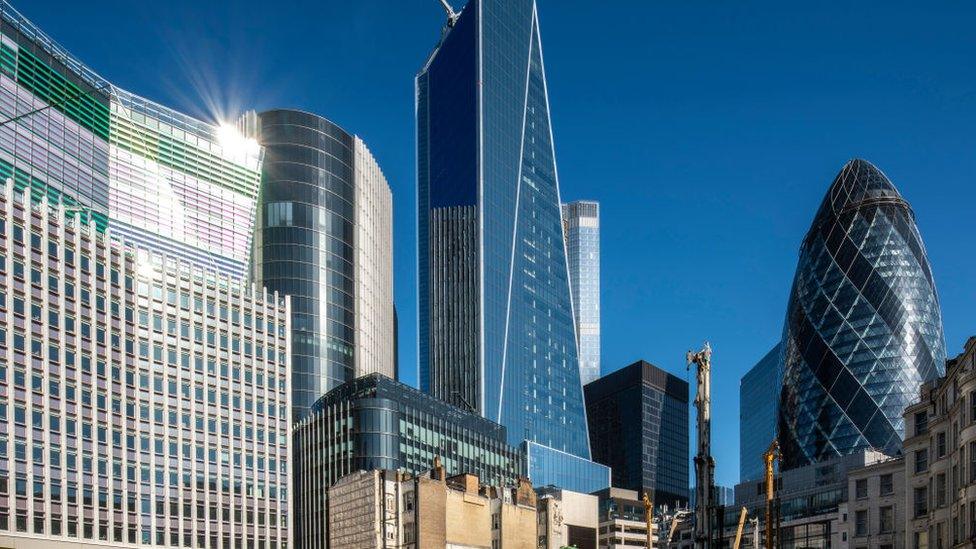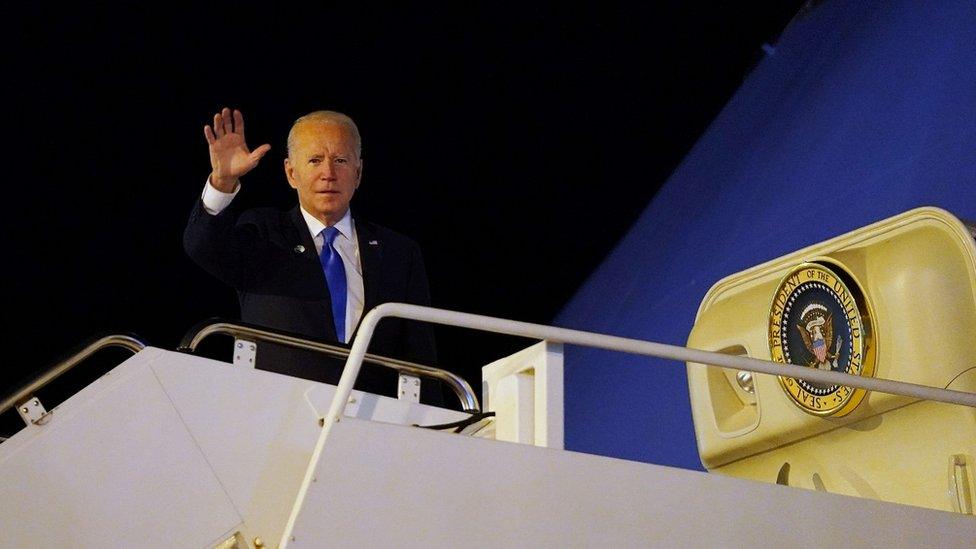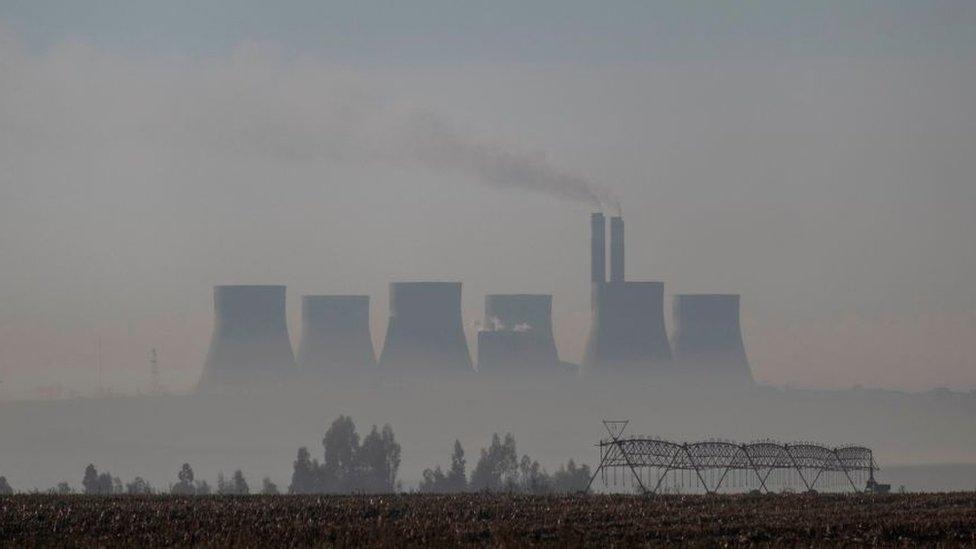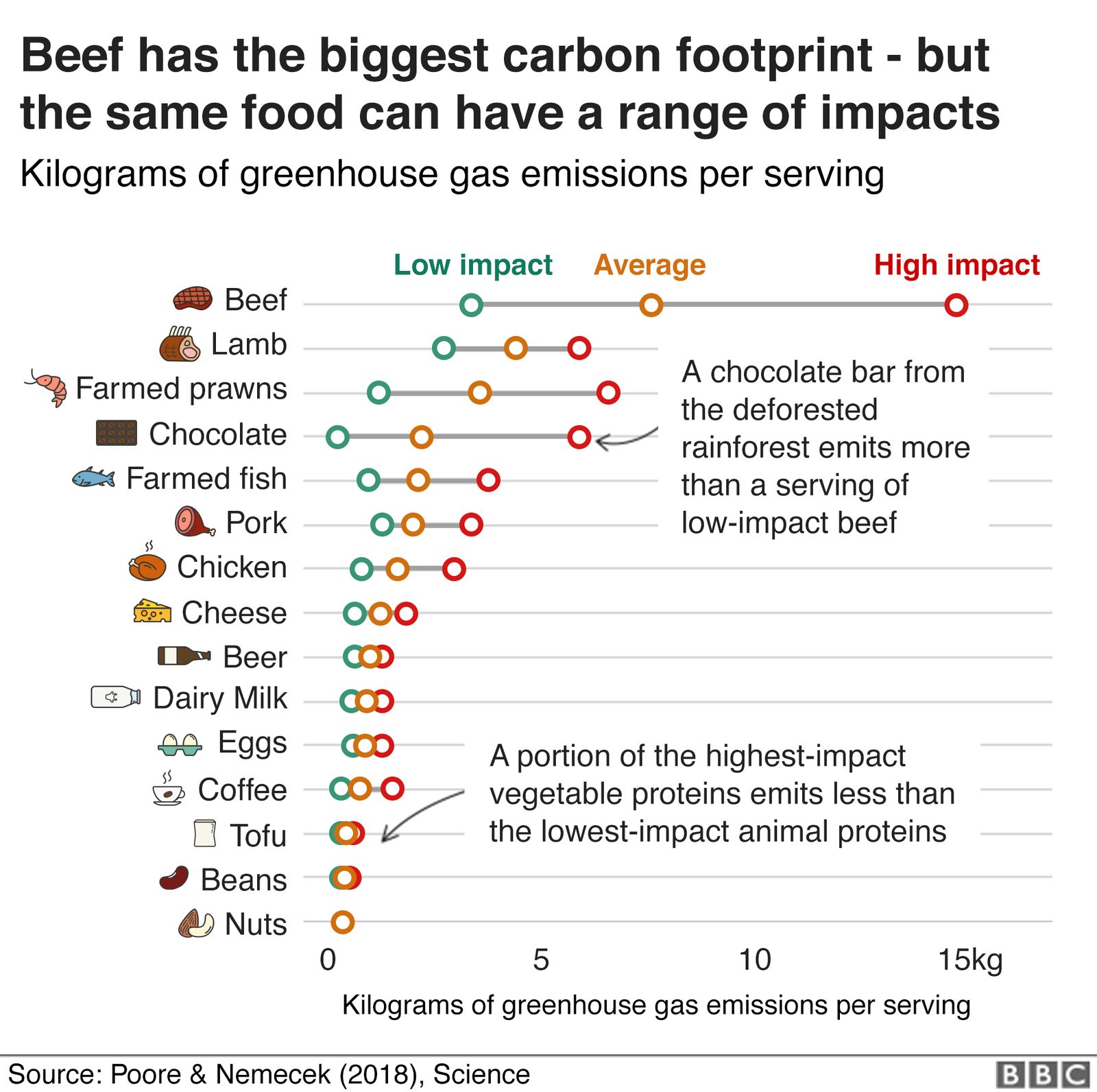COP26: Low-carbon firms and Biden hails progress
- Published
Here are five things you need to know about the COP26 climate change conference on Wednesday.

1. Low-carbon planning for UK firms
Today is finance day at the COP26 climate summit in Glasgow and Chancellor Rishi Sunak is due to set out plans to encourage large firms to work towards the UK's 2050 net-zero target. Under new Treasury rules most big UK firms and financial institutions will be forced to publish details, by 2023, of how they will move to low-carbon emissions. Though not mandatory, the government said the aim is to increase transparency and accountability. However, green groups say the proposals do not go far enough. This announcement comes as deals such as cutting methane emissions and boosting green technologies were agreed on Tuesday. To keep up-to-day with what's happening to today, follow our updates.


2. Biden leaves hailing summit progress
The vast majority of world leaders viewed COP26 as an opportunity to "press the restart button", US President Joe Biden said, hailing the progress of the conference as he left. His visit ended following the conclusion of the world leaders summit, which kickstarted the conference. He left Edinburgh Airport in Air Force One after saying: "We showed up... and by showing up we've had a profound impact on how the rest of the world is looking at the United States and its leadership role." He added that the absence of the Chinese leader Xi Jinping at the summit was a "big mistake".


3. South Africa's deal to end coal reliance
To help end its reliance on coal, South Africa is set to receive $8.5bn (£6.2bn) from wealthier nations in what President Cyril Ramaphosa says is a "watershed moment". The deal could have global and local implications as the country is a major emitter of greenhouse gases, which cause the planet's temperature to rise. South Africa uses coal to generate electricity.


4. 'We have no hill to run to'
The Republic of the Marshall Islands - a sprawling nation of more than 1,200 low-lying atolls and isles in the Pacific Ocean - are only 2m above sea level. Sea level rise caused by climate change means it is one of the most threatened countries in the world, says poet and activist Kathy Jetn̄il-Kijiner, adding that unlike other island nations, there are no mountains and there's no higher ground to go to. She's a climate envoy at COP26 and she told us how it feels to fight for her country's very existence.


5. Changing carbon
A bubble playground's making an impression on children and there's a hope it could make an impression on the world. With each bounce, microscopic algae in the inflatable turn carbon dioxide, CO2, and other minerals from the air into oxygen. So the more you bounce, the better it is. Take a look.
Watch: The playground which removes carbon emissions from the air by bouncing


And there's more...
Delegates have been given a flavour of the carbon footprint of their meals at the summit. But can we reduce it through our diet? Switching to a plant-based diet can help fight climate change, according to a major report by the UN's Intergovernmental Panel on Climate Change, which says the West's high consumption of meat and dairy is fuelling global warming.
So should there be limits on eating meat? We've taken a look and answered some of the other questions you have too.

You can find further information on our climate page.


What questions do you have about changes in our climate?
In some cases your question will be published, displaying your name, age and location as you provide it, unless you state otherwise. Your contact details will never be published. Please ensure you have read our terms & conditions and privacy policy.
Use this form to ask your question:
If you are reading this page and can't see the form you will need to visit the mobile version of the BBC website to submit your question or send them via email to YourQuestions@bbc.co.uk, external. Please include your name, age and location with any question you send in.